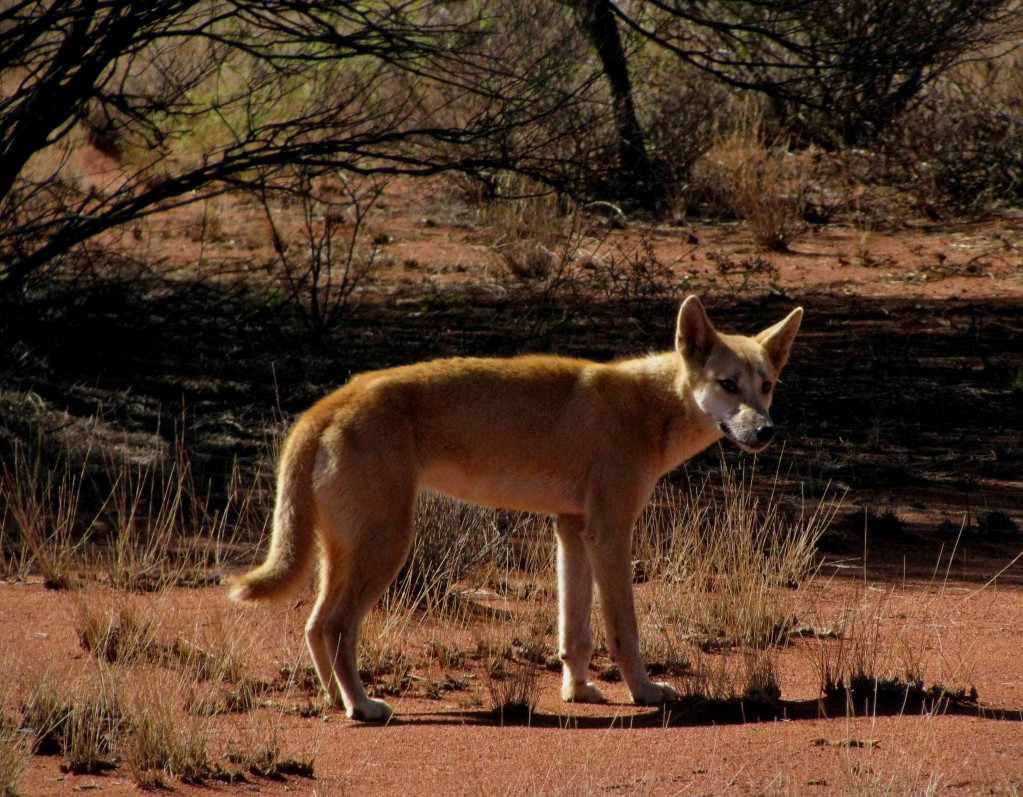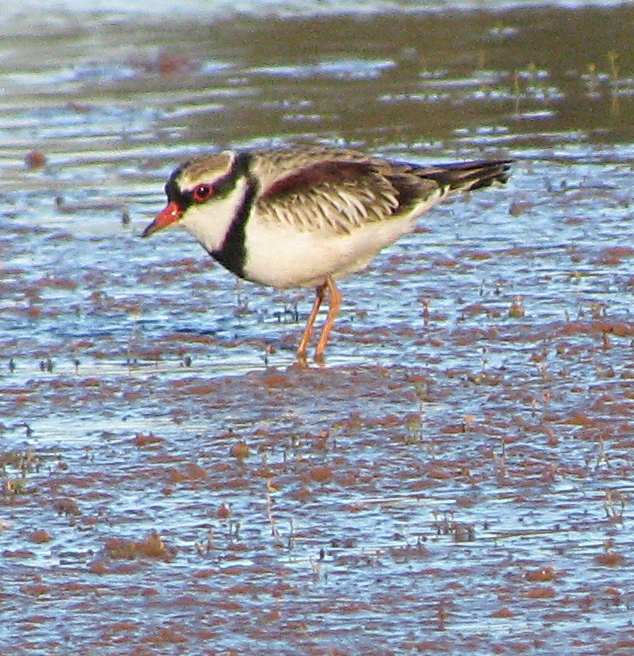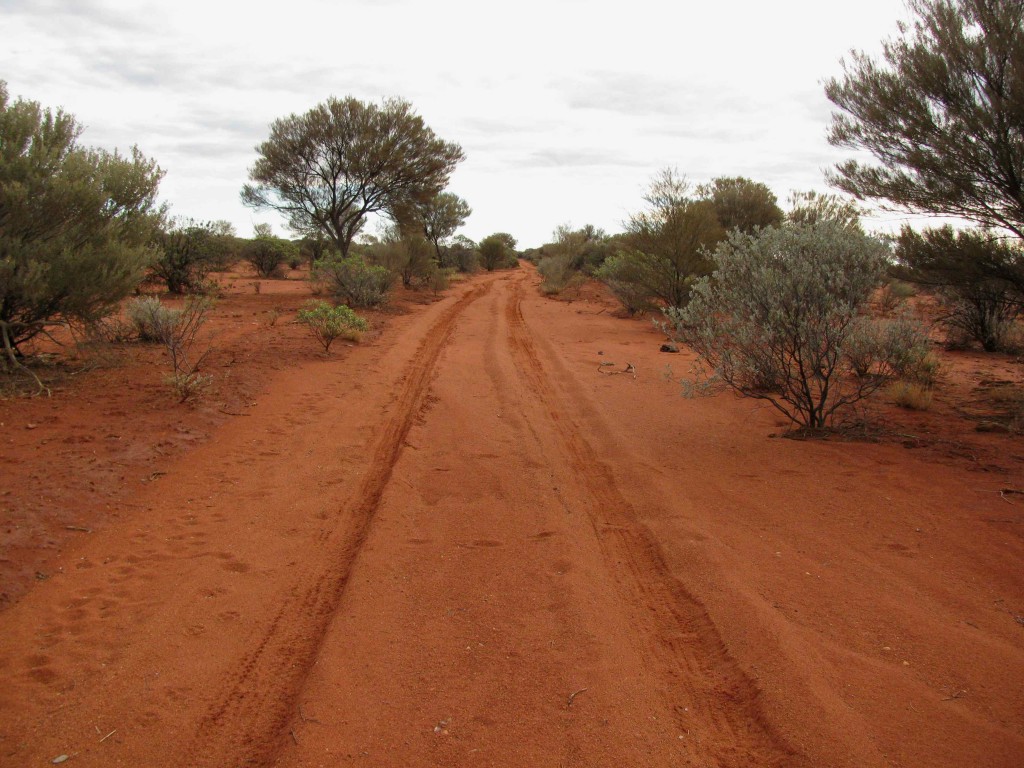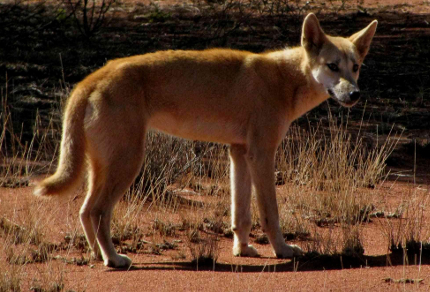Townsville: Warm wind rustled palm fronds in our yard and blew dead fronds slithering down onto the ground where they landed with resounding thuds. It seemed a harbinger of something new, some change about to sweep into this dry tropics city. In its wake, I gathered the lengthy fallen leaves and also dashed outdoors several times upon hearing an unusual avian vocalization. The latter I eventually paired up with a female brown goshawk perched in a rain tree on the golf course. Truly magnificent, the goshawk stared down at me out of brilliant yellow eyes under beetled brows, her plumage shades of grey, white, and rusty brown, her voice a series of slow, mellow-sounding 2-syllable notes with pauses between them. Perhaps it was she the wind blew in.

Dingo, Cunyu Station, Western Australia (© Vilis Nams)
After writing about one predator, I’ll mention another. Early this afternoon, the ABC’s news program The World Today reported that dingoes are smarter than domestic dogs.1 This statement was based on the findings of Bradley Smith, a Ph.D. candidate at the University of South Australia. Mr. Smith conducted experiments at the Dingo Discovery and Research Centre in which he compared how long it took dingoes and domestic dogs to solve problems. One problem required the wild and domesticated canids to figure out how to obtain food placed behind a transparent V-shaped panel. Domestic dogs needed human assistance and required 20-40 seconds to realize they had to actually move away from the food in order to get around the panel to the food. Dingoes solved the problem on their own in 10 seconds. Mr. Smith said the dingoes’ response closely parallels that of wolves and that their problem-solving abilities are necessary to survival. Domestic dogs, on the other hand, apparently don’t need to know how to survive. Rather, they need to know how to behave.

Black-fronted dotterel, Western Australia (© Vilis Nams)
Western Australia: After their last night in the outback of Western Australia, the research crew packed up and left Yakabindi station. They drove to Leinster and flew via an 18-passenger Skipper Airlines plane (very informal) to Perth. Thus ended a once-in-a-lifetime adventure for Vilis and Janis.

Desert Road, Western Australia (© Vilis Nams)
Today’s birds: peaceful doves, rainbow lorikeets, brown honeyeaters, tawny frogmouths, magpie-larks, white-gaped honeyeaters, white-throated honeyeaters, Brahminy kite, whistling kite, spangled drongos, rainbow bee-eaters, little egret, welcome swallows, mynas, anhinga, black kite, little pied cormorant, comb-crested jacana, little black cormorant, *little bronze-cuckoo, yellow honeyeaters, varied triller, little shrike-thrush, brush cuckoo, rufous whistler, *chestnut-breasted mannikins, nutmeg mannikins, green figbirds, laughing kookaburras, *brown goshawk. (*denotes lifelist sighting)
Reference:
1. Simon Lauder. Dingoes deemed top dogs, domestics dissed as dunces. ABC News, The World Today, Wednesday, June 10, 2010, 12:45 p.m. http://www.abc.net.au/worldtoday/content/2010/s2928438.htm


